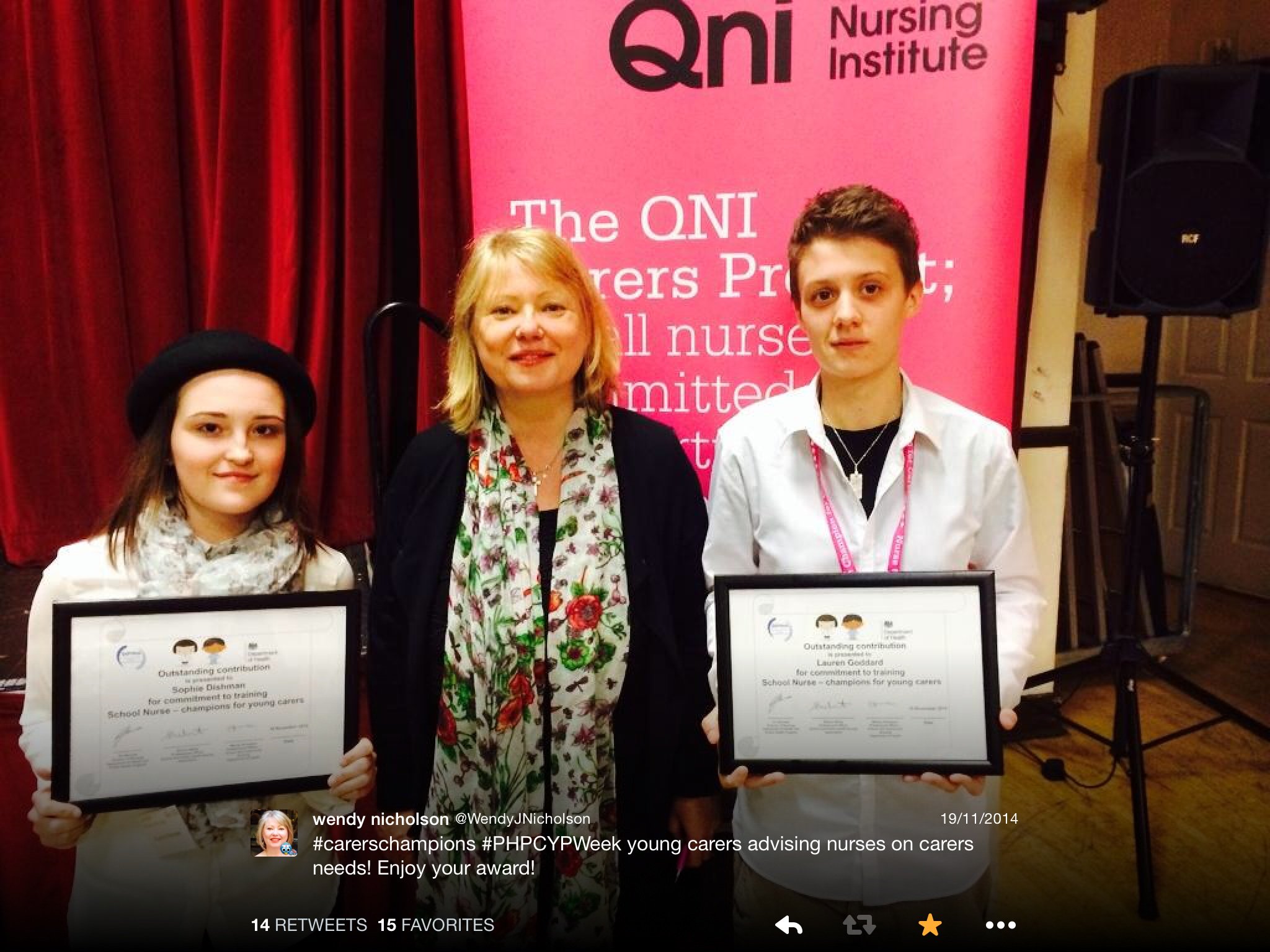
 We recognised the health and wellbeing of young carers could be improved, particularly given the number of young carers is increasing year on year.
We recognised the health and wellbeing of young carers could be improved, particularly given the number of young carers is increasing year on year.Data from the 2011 census, shows nearly a quarter of a million people aged 19 and under in England and Wales were caring for parents, siblings and others. These young carers may remain hidden due to the fear of being identified, not realizing they are a young carer or through professionals not acknowledging their role and therefore failing to identify and support them.
➧ Key statistics:
●● 9% of the 166,363 young carers in England care for 50 hours a week or more (census 2011)
●● 80% care for 1-19 hours per week; and 11% for 20 – 49 hours per week
●● 22% of young people under 16 in the UK (2.6 million) live with a hazardous drinker (BMC Public Health 2009)
●● In the UK, 335,000 children live with a drug dependent parent (BMC Public Health 2009)
●● Young carers have significantly lower educational attainment at GCSE level, the equivalent of nine grades lower overall then their peers e.g. the difference between nine Bs and nine Cs (The Children’s Society, Hidden from View, 2012).
Many young carers are not identified or chose not to be, this can be for many reasons, for example fear of being removed from the family home or not wanting to be stigmatised. We recognised that school nursing teams as a universal service could have a vital role to play in supporting young carers and embarked on a programme to raise awareness of young carers needs.
The department of health has worked with SAPHNA, QNI and RCN plus the children's society and carers trust to look at the role of school nurses and how they could be supported to be more young carer aware. From the outset of the work young carers themselves were involved and they shaped the way froward. Young carers designed the art work for the badge school nurses who are carer aware to wear.
The work has a number of kept elements training, pathways and champion pledges. On the training we held champion for young carer events for school nurses - young carers were involved in training school nurses and interviewing them to ensure they all pledged to make a difference locally.
We have about 300 school nurse champions now and the numbers are growing. The pledges range from designing information about young carers for schools to whole service redesign.
Pathways - we worked with partners and the profession to develop guidance for practitioners and commissioners to support the needs of carers.
https://www.gov.uk/government/uploads/system/uploads/attachment_data/file/299270/Young_Carers_pathway_Interactive_FINAL.pdf
This was launched last year with a powerful blog from a young carer. Local services are reporting this has helped to influence commissioning services and drawing in funding from local authorities.
Resource development - QNI and the RCN have developed on line training for school nurses http://qni.org.uk/supporting_carers/school_nurse_resources . The resources are user friendly and can be used at the practitioners pace.
In addition, a number of carer summits have been held for nurses to attend to learn about the resources, pathways and to share good practice. The event held this week by QNI illustrated examples of school nurses and wider community nurses making a difference every day for carers. Young carers have been key partners in this work and recognised for their contribution.
